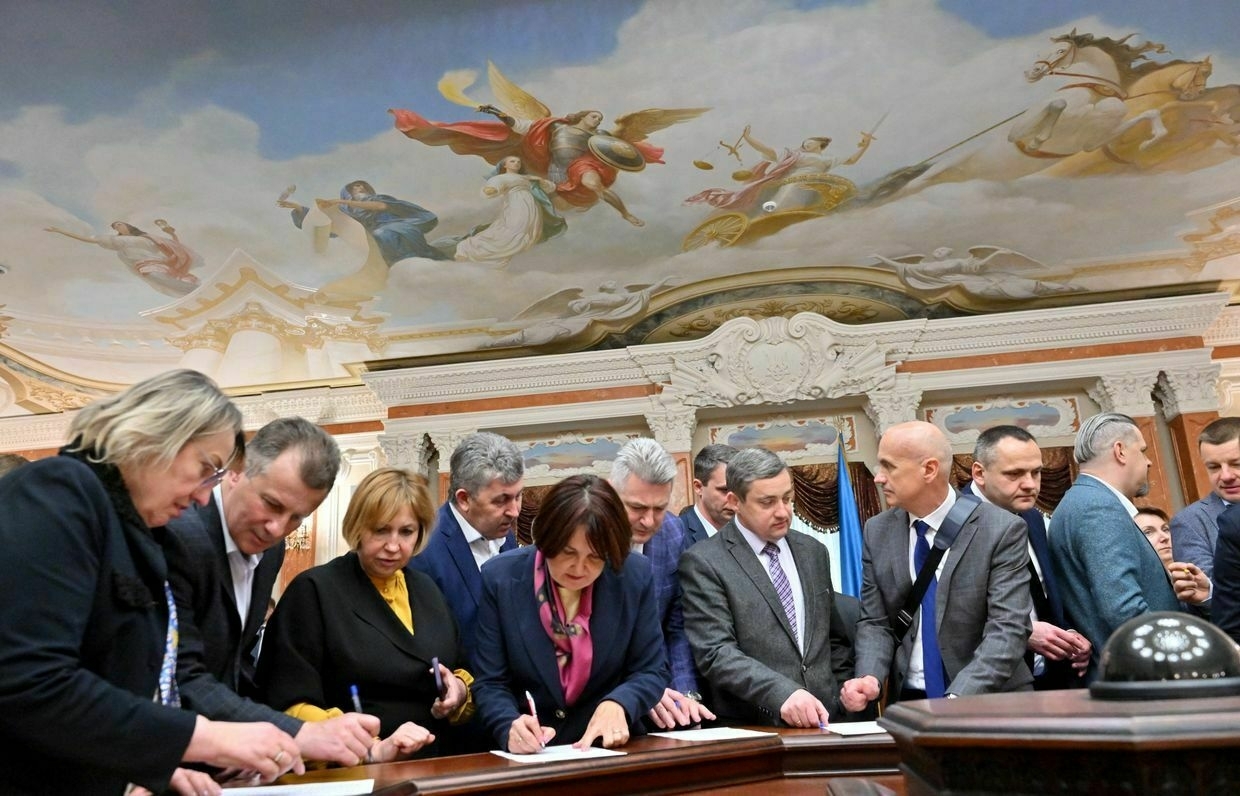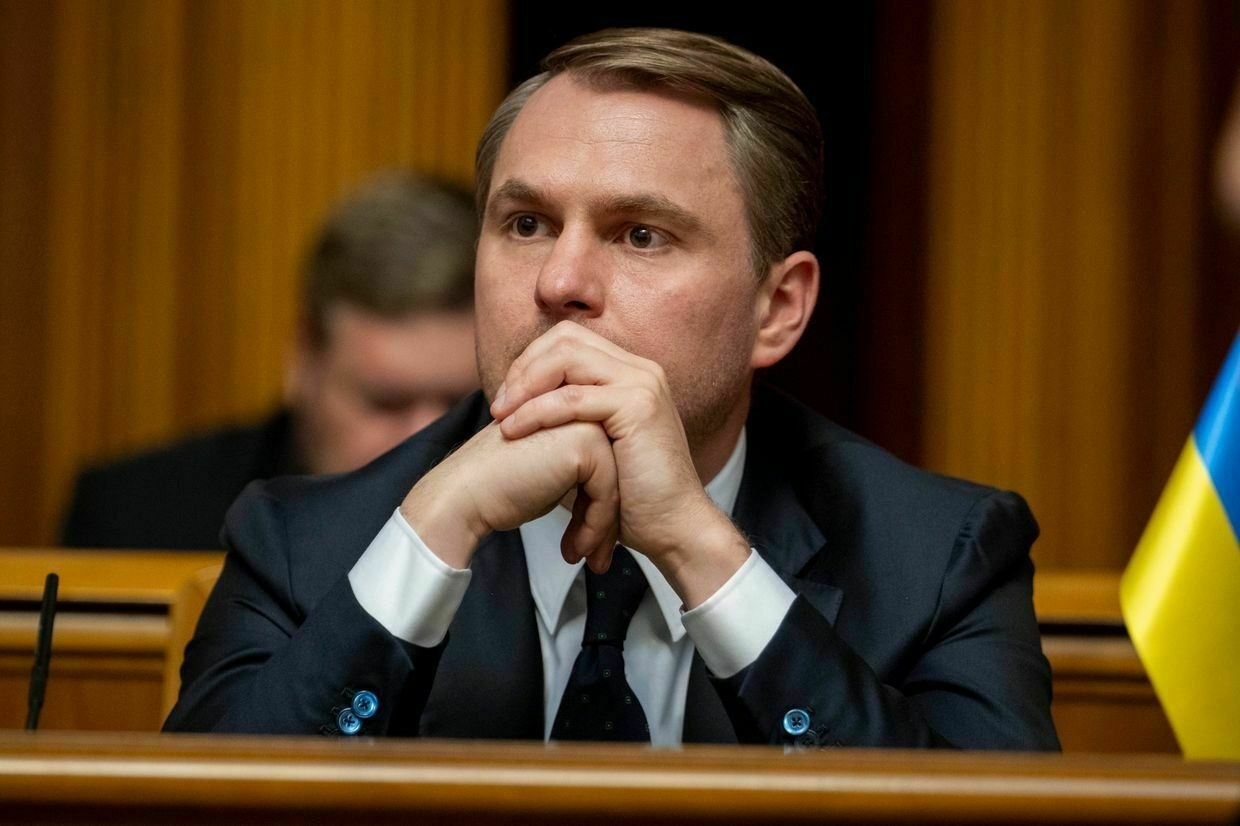
Loyalty to the incumbent administration has been the key requirement for prosecutor generals in Ukraine.
Ruslan Kravchenko, who was appointed as prosecutor general on June 21, appears to be no exception.
Previously he had been appointed as a military governor by President Volodymyr Zelensky and is seen as a presidential loyalist.
Kravchenko became Ukraine’s top prosecutor after a lengthy hiatus during which the position of prosecutor general remained vacant.
His predecessor, Andriy Kostin, resigned in October 2024. Kostin’s deputy, Oleksiy Khomenko, served as acting prosecutor general in the interim.
Kravchenko, who also has a background as a military prosecutor and has prosecuted the Russian war crimes in Bucha, was seen by the authorities as an appropriate candidate for the prosecutor general job in wartime.
Many in civil society disagree. Activists and experts have called for appointing an independent and apolitical prosecutor general capable of delivering impartial justice.
To ensure this, they propose appointing the prosecutor general with the participation of international experts, similarly to how it is done in some other law enforcement and anti-corruption agencies.
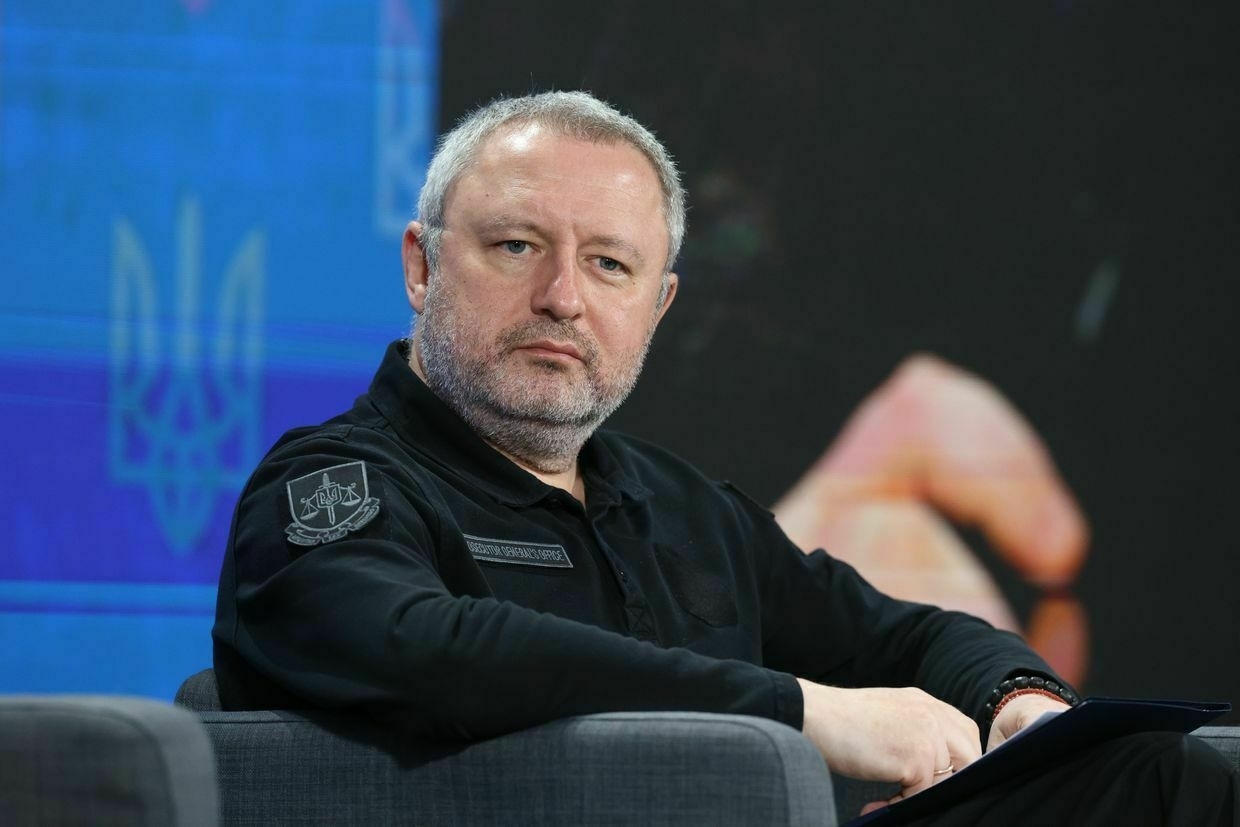
Currently, the prosecutor general is nominated by the president and approved by parliament, where President Volodymyr Zelensky’s party holds the majority.
Some argue that this sets any prosecutor general up for failure.
“As long as the current (appointment) procedure is kept, any prosecutor general will be dependent,” Yaroslav Yurchyshyn, a member of parliament from the Holos opposition party, told the Kyiv Independent. “Are there grounds for believing that (Kravchenko) could be effective and professional? Yes. But won’t this be offset by his political dependence?"
The Prosecutor General’s Office told the Kyiv Independent that statements on Kravchenko’s dependence on the Zelensky administration are “speculative, baseless and not supported by any facts."
Another issue is that Kravchenko was deemed not to meet ethics and integrity standards during earlier contests for law enforcement jobs. This is why some anti-corruption activists believe he is not fit to be prosecutor general either.
Commenting on the accusations, the Prosecutor General’s Office told the Kyiv Independent that Kravchenko received the highest scores in tests for legal knowledge, analytical thinking and practical skills during the 2022 contest for the job of the National Anti-Corruption Bureau’s head.
“His activities have always been based on the principles of professionalism, impartiality, legality and responsibility,” the prosecutor’s office added.
Experts interviewed by the Kyiv Independent provided different assessments of Kravchenko.
Daria Kaleniuk, executive director of the Anti-Corruption Action Center, argued that she does not trust Kravchenko and described his career path as “questionable.” Kaleniuk was on the vetting panel that rejected Kravchenko’s candidacy for an anti-corruption prosecutor job in 2020 over integrity concerns.
Yaroslav Zhelezniak, a member of parliament from the liberal Holos party and a frequent critic of the authorities, was more upbeat. He said that Kravchenko was the best among the candidates for prosecutor general being considered by the President’s Office.
“He does have management skills,” Oleksandr Lemenov, head of the anti-corruption watchdog StateWatch, told the Kyiv Independent, based on what he heard from people who had worked with Kravchenko. “Whether (his skills) will be enough for the position of prosecutor general — only time will tell."
 The Kyiv IndependentOleg Sukhov
The Kyiv IndependentOleg Sukhov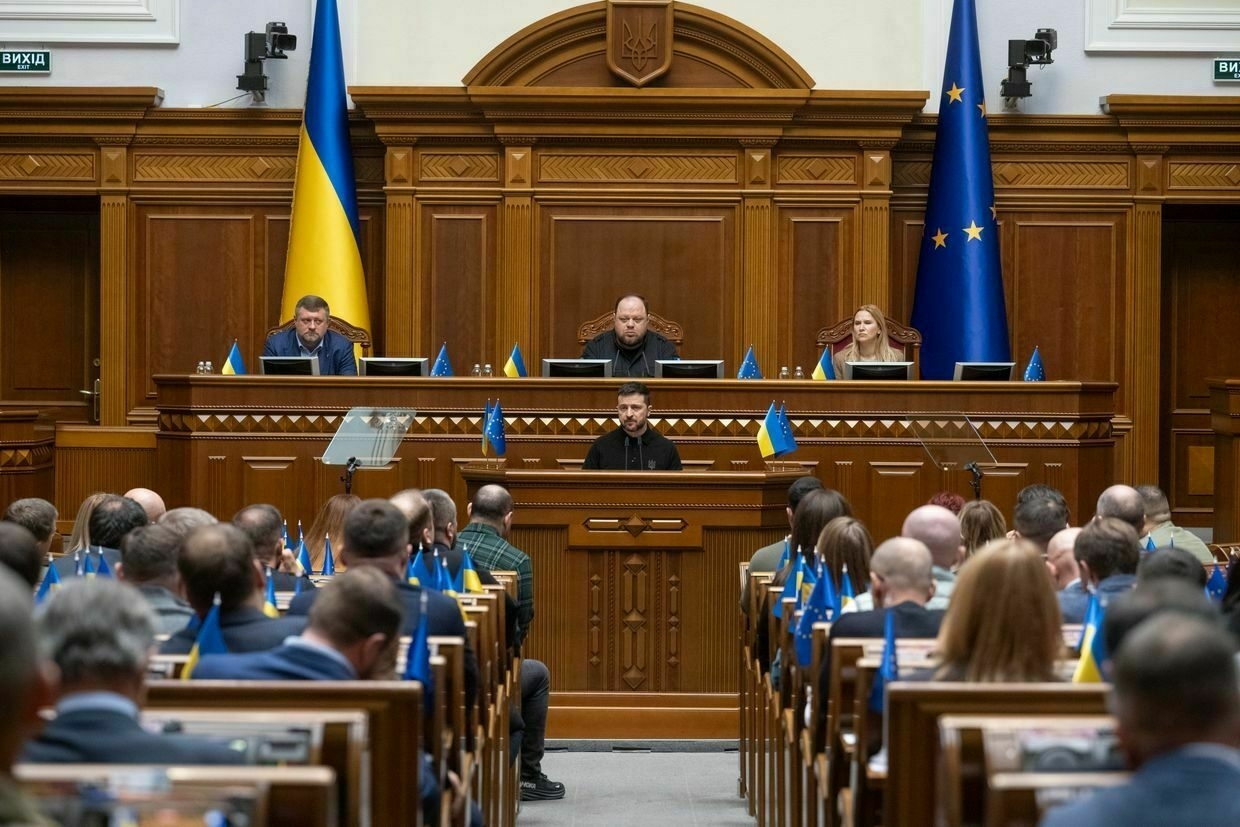
Early career
Kravchenko, 35, is the youngest prosecutor general in Ukraine’s independent history. He studied at the Kyiv Military College and at the military law department of the Yaroslav the Wise Legal Academy in Kharkiv.
He was a prosecutor in Crimea during its illegal annexation by Russia in 2014 and left the peninsula as a result.
Subsequently Kravchenko was in charge of the criminal case against Russian soldiers Alexander Aleksandrov and Yevgeny Yerofeyev. They were sentenced to 14 years in jail for participating in a war of aggression and swapped as part of a prisoner exchange in 2016.
Kravchenko was also a prosecutor in the case against soldiers of Ukraine’s Tornado volunteer unit, which consisted of former convicts. They were sentenced to different prison terms of up to 11 years in 2017 on charges of kidnapping, torturing and raping people.
 The Kyiv IndependentOleg Sukhov
The Kyiv IndependentOleg Sukhov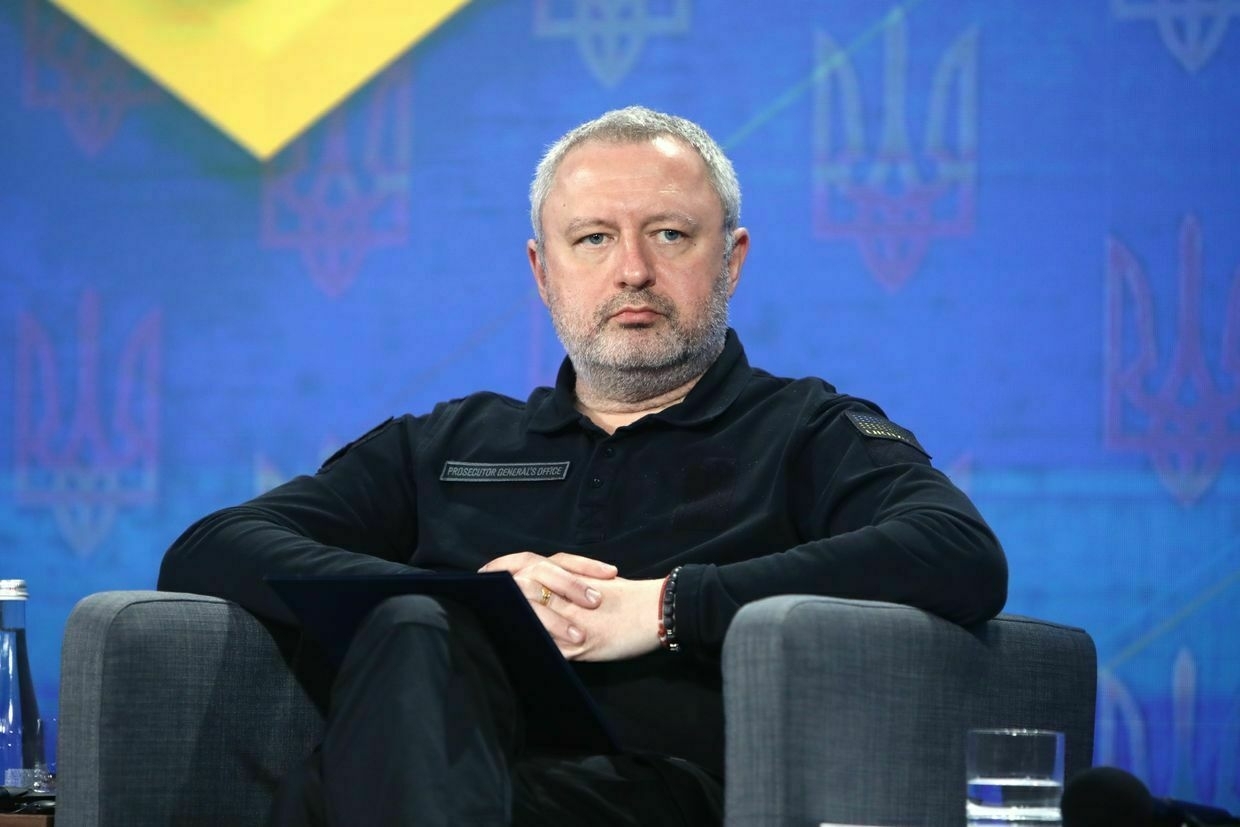
At the military prosecutor’s office
From 2015 to 2019, Kravchenko worked as a prosecutor at the military prosecutor’s office, then headed by Anatoly Matios.
The military prosecutor’s office, a Soviet relic, was subordinated to both the prosecutor general and defense minister and did not comply with Western legal standards. It was dissolved in 2020.
Lemenov, head of anti-corruption watchdog StateWatch, argued that Kravchenko may try to resurrect the military prosecutor’s office, which would be a dangerous tendency.
The office had a highly controversial reputation within Ukraine’s civil society. Matios and his subordinates were accused of corruption, blocking criminal cases and persecuting activists — allegations that they denied.
Kaleniuk also told the Kyiv Independent that the military prosecutor’s office lacked transparency and accountability. In 2017, public access to the asset declarations of military prosecutors was closed — a move that anti-corruption activists interpreted as an effort to hide their ill-gotten wealth.
From 2017 to 2019, Kravchenko was the prosecutor during the high treason trial against Viktor Yanukovych, a disgraced former president ousted by a popular uprising in 2014. He was convicted in absentia and sentenced to 13 years in prison for publicly urging Russian President Vladimir Putin to invade Ukraine in 2014.
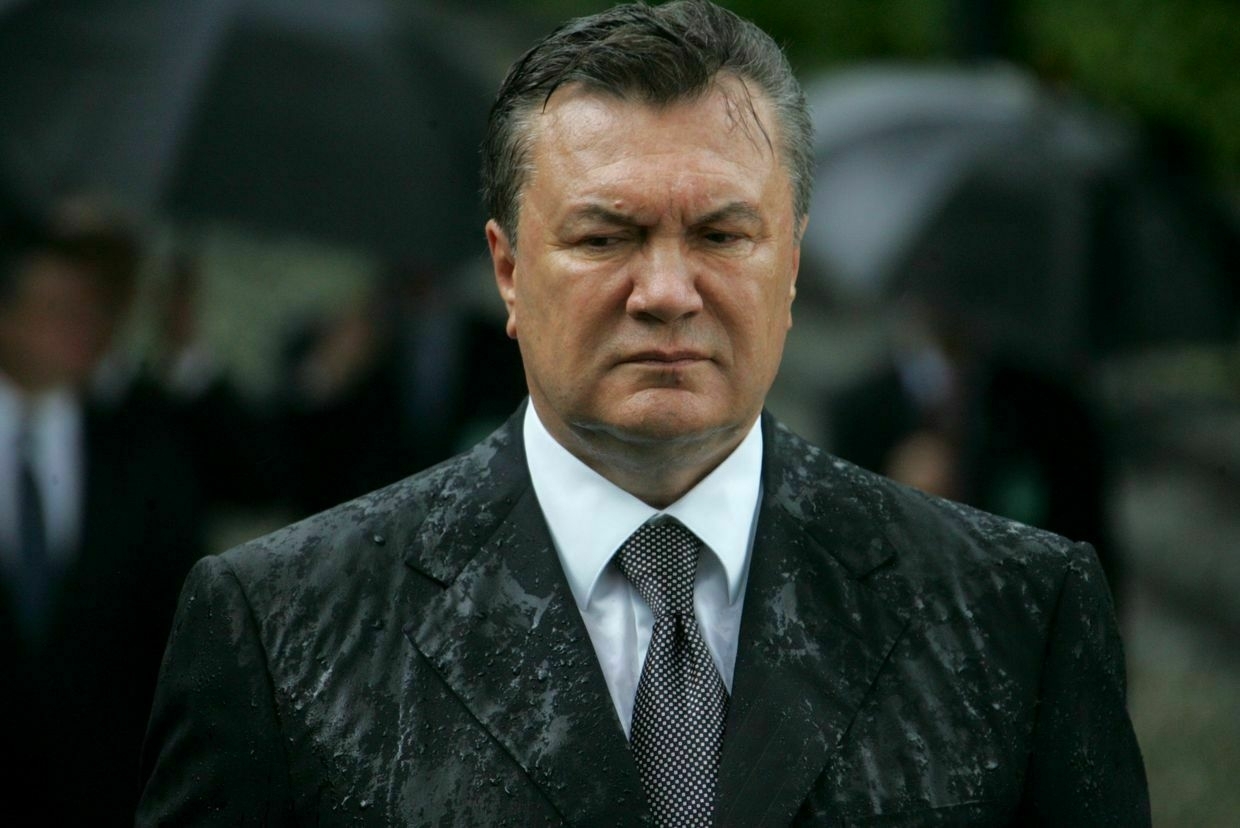
Some commentators, including Yurchyshyn, praised Kravchenko’s role in the trial.
Others were more skeptical.
Vitaly Tytych, who represents the families of protesters murdered during the revolution that ended Yanukovych’s presidency, has previously criticized the high treason case as lacking substance and called it a public relations stunt.
He accused the prosecutor’s office of being unprofessional, failing to collect enough evidence and making controversial statements that Yanukovych’s defense used to prove a political motive in the case.
 The Kyiv IndependentOleg Sukhov
The Kyiv IndependentOleg Sukhov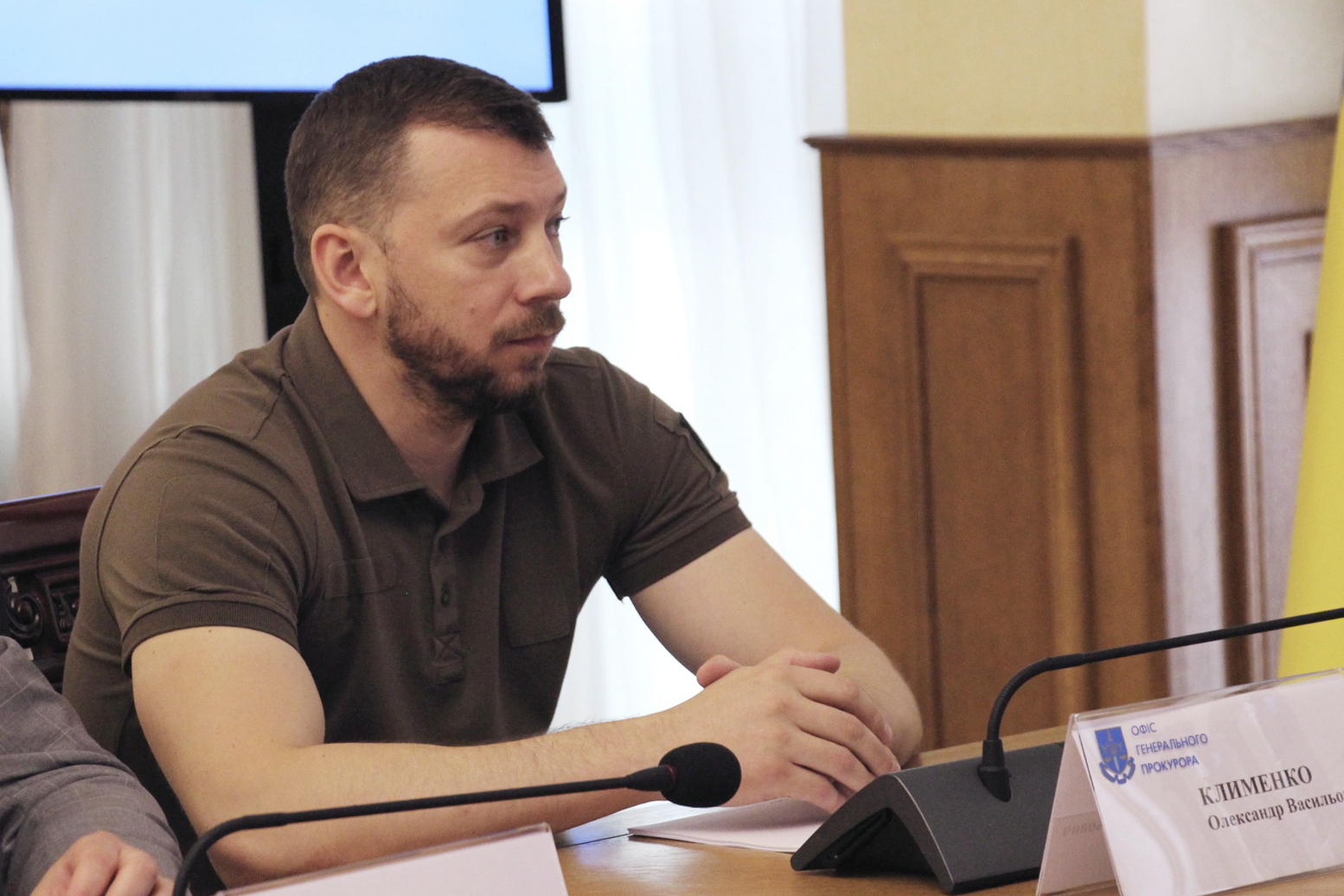
Integrity issues
In 2020 Kravchenko applied for the job of an anti-corruption prosecutor but was vetoed by a panel of Ukrainian and international experts as not meeting integrity and ethics standards.
One of Kravchenko’s alleged unethical actions was that he had applied for and received a 42-square-meter apartment in Kyiv from the state free of charge and sold it.
The distribution of free state-provided apartments to prosecutors and other officials is a widespread practice in Ukraine, although it is often criticized on ethical grounds.
Kaleniuk, who was on the panel, said that Kravchenko had bypassed the waiting list due to a war veteran document and acquired the apartment ahead of schedule.
“When there is a high level of corruption in the country, a prosecutor general with integrity issues is being appointed.”
However, he did not actually take part in the war and got war veteran status because he was a military prosecutor in the Donbas, where Russia launched an invasion in 2014, she added.
Kravchenko lived in an apartment in Kyiv owned by his wife at the time.
Asked by the vetting panel why he needed another apartment, he said: "I'm a man first of all, today I'm married, and tomorrow I might not be."
It is ironic that, due to the appointment procedures, "to become a rank-and-file anti-corruption prosecutor, you have to meet integrity standards, and to become prosecutor general, you don't," Yurchyshyn said.
Kravchenko denied the accusation of unethical behavior on June 22, saying on Facebook that he had a right to acquire the apartment and that he sold it in order to buy a bigger one.
In 2022, he also took part in a contest to become the chief of the National Anti-Corruption Bureau of Ukraine (NABU). However, he was vetoed again for not meeting integrity and ethics standards.
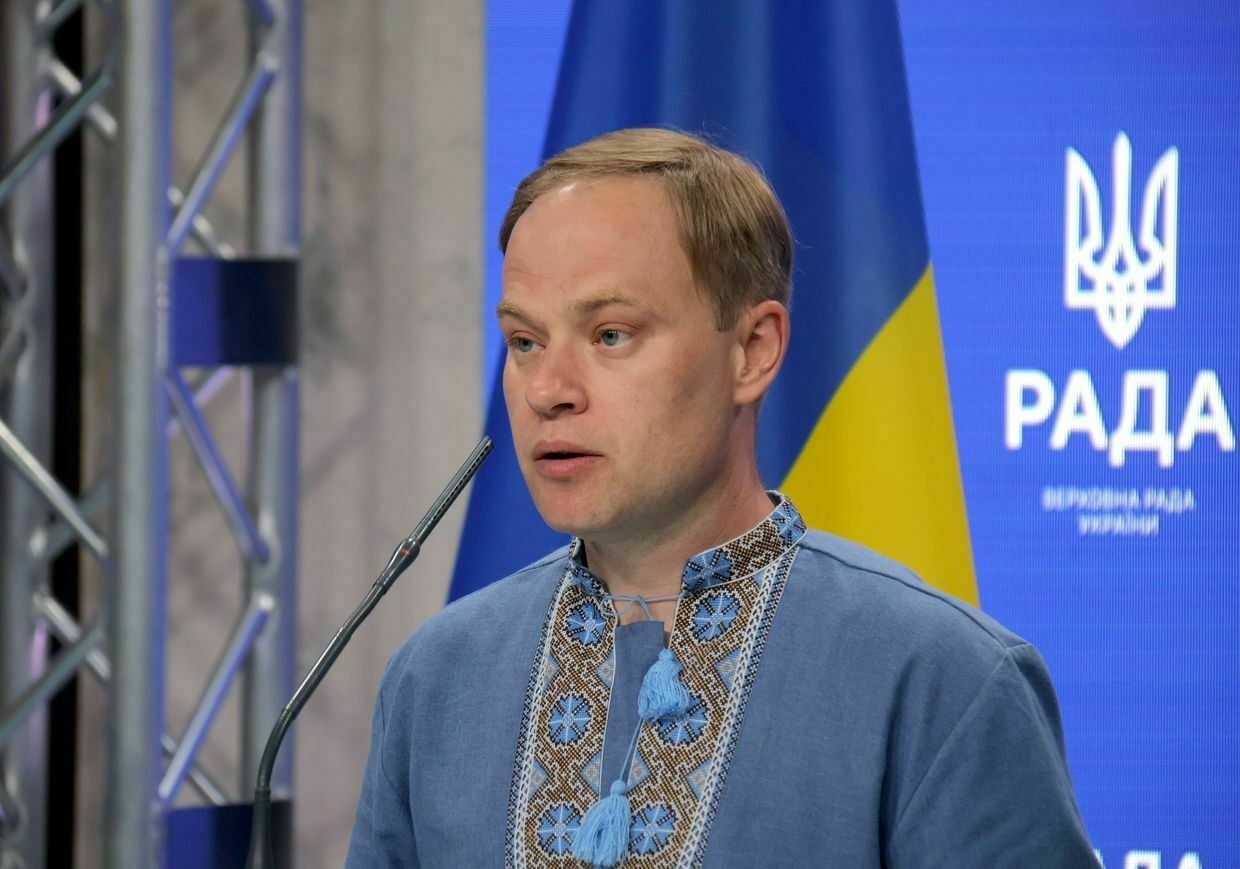
The vetting panel argued that the income of Kravchenko's parents did not meet their expenses, signaling that he could be using them as a front for his own assets.
During the vetting process, Kravchenko indicated max.noumann@gmail.com as his email, triggering another ethical concern. The vetting panel said that the name was similar to that of Max Naumann, the head of a pro-Hitler Jewish group in Nazi Germany that called for the assimilation of German Jews.
Kravchenko said that this was a coincidence, and that he had made the name up.
"When there is a high level of corruption in the country, a prosecutor general with integrity issues is being appointed," Yurchyshyn said. "This is not a good signal for society, and this will be perceived negatively by society and our Western partners."
 The Kyiv IndependentOleg Sukhov
The Kyiv IndependentOleg Sukhov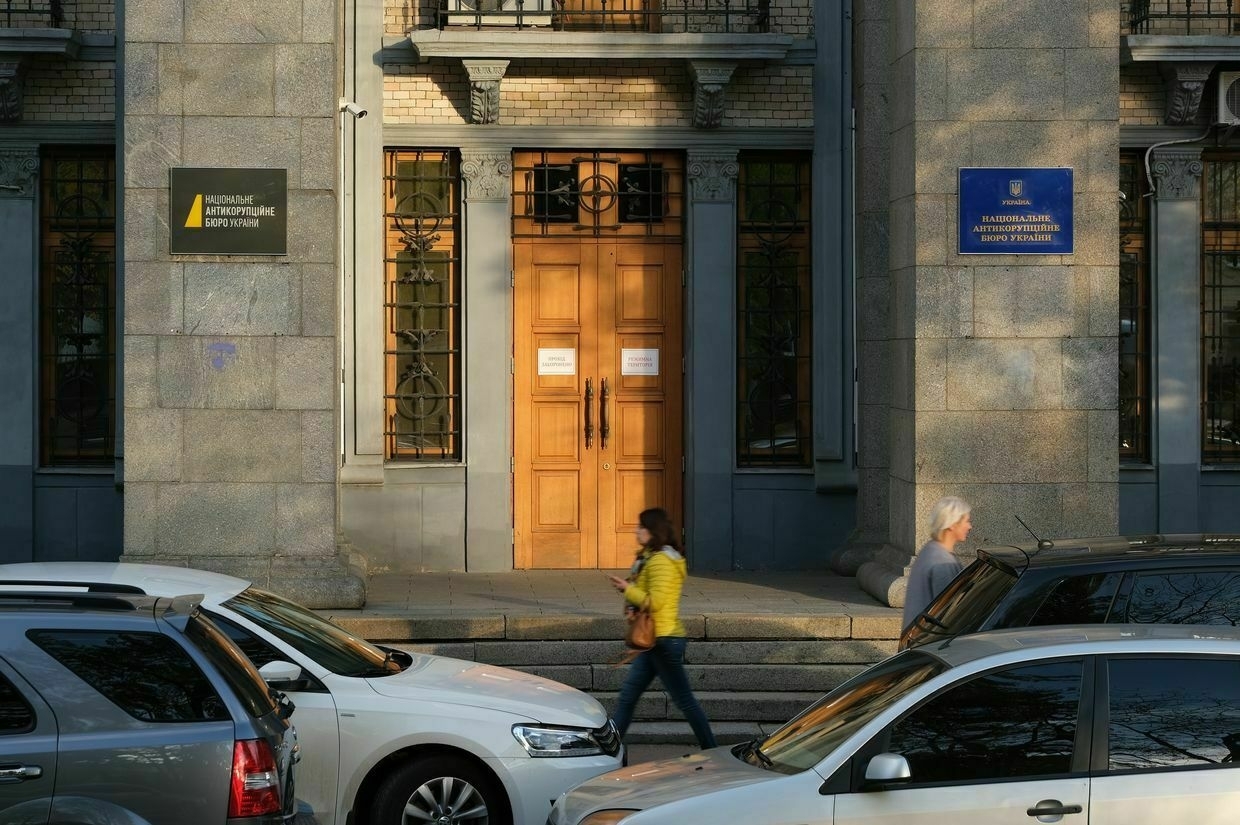
Recent jobs
From 2021 to 2022, Kravchenko was the chief prosecutor of Bucha in Kyiv Oblast, and oversaw the investigation of war crimes committed by Russian troops in the town.
During their brief occupation of Bucha and nearby areas in February and March 2022, Russian troops massacred hundreds of civilians.
As part of the Bucha investigation, 24 indictments against Russian soldiers have been sent to courts for trials in absentia.
Kravchenko also served as the head of the Kyiv Oblast military administration from 2023 to 2024 — an equivalent to a governor, appointed by the president.
Kravchenko was also appointed by the Cabinet as the head of the State Tax Service in December 2024 and served in that role until June.
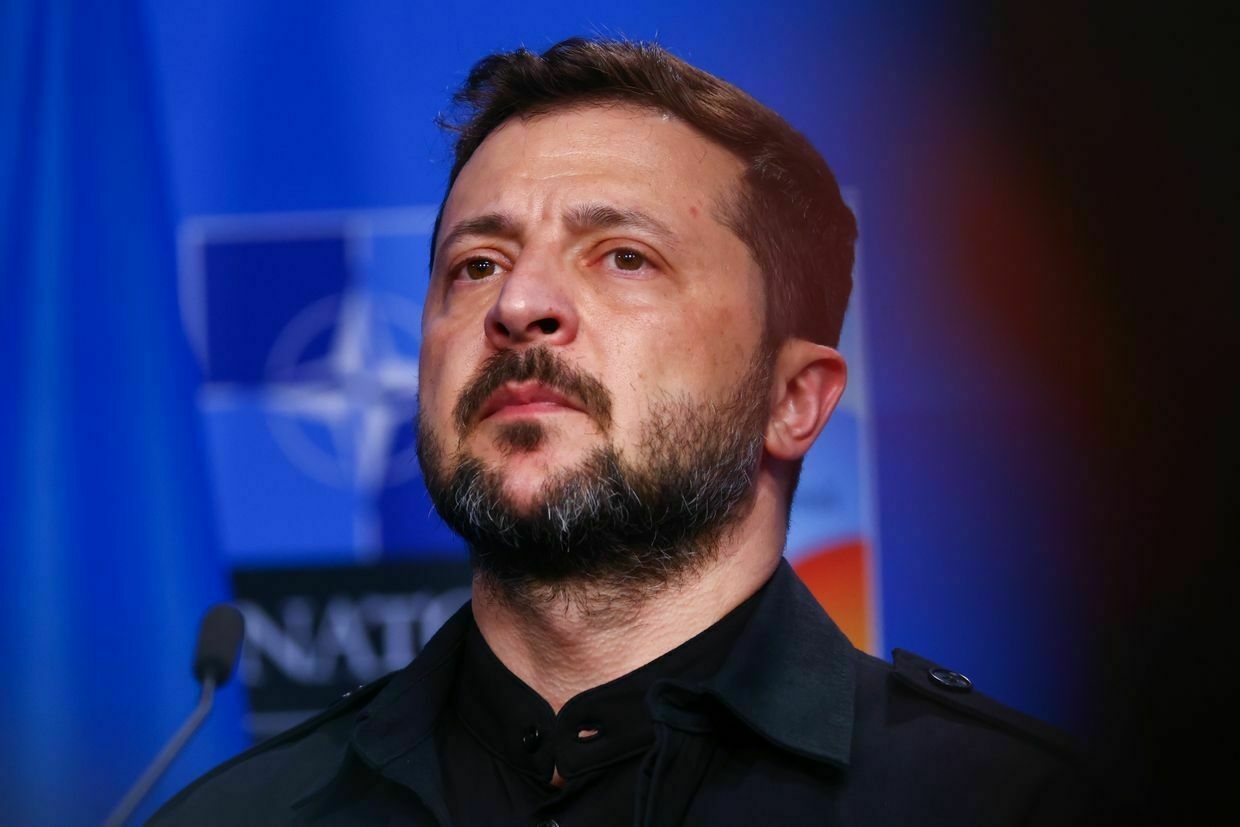
Despite the shortness of Kravchenko’s tenure there, Zhelezniak argued that Kravchenko had been effective as the Tax Service’s head: There were no corruption scandals, budget revenue rose, and the number of businesses' complaints fell.
Kaleniuk and Yurchyshyn argued, however, that Kravchenko's stint in the role was too short to allow for meaningful assessment.
Yet the main issue remains — Kravchenko’s alleged dependence on the President’s Office could make it difficult for prosecutors to resist political interference.
"Kravchenko is not independent. He is convenient for (Zelensky's) Oleh Tatarov," Kaleniuk said in a reference to Zelensky's controversial deputy chief of staff responsible for law enforcement.
Note from the author:
Hello! My name is Oleg Sukhov, the guy who wrote this piece for you.
I was born in Russia and moved to Ukraine in 2014 because I couldn't stand the suffocating atmosphere of that semi-totalitarian country. I used to think it might be possible to transform Russia into a liberal Western-oriented country. Now it's clear that it's a lost cause.
But at least I can atone for the crimes of my homeland by exposing its barbaric aggression against Ukraine and providing objective and independent coverage of what is going on there. I'm also trying to contribute to Ukraine's transformation into a full-fledged Western liberal democracy strong enough to defeat Russia.
Our publication needs help from every one of you — support Ukrainian wartime journalism, become a member of the Kyiv Independent.
 The Kyiv IndependentOleg Sukhov
The Kyiv IndependentOleg Sukhov